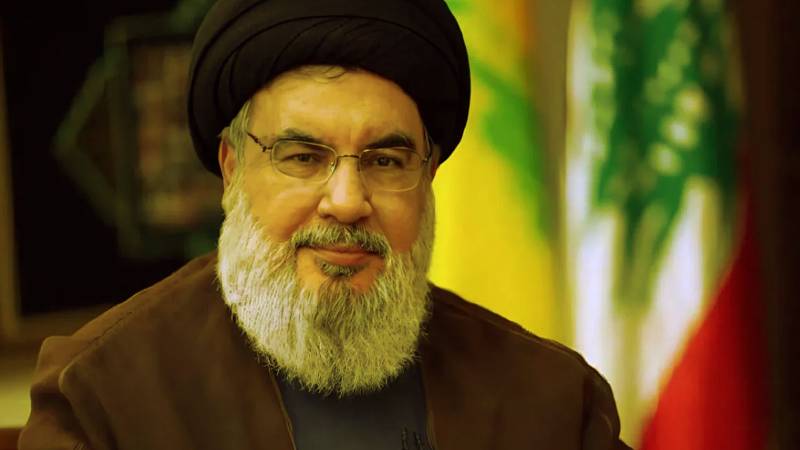
In an escalation of conflict, Hezbollah’s leader, Hassan Nasrallah, has been confirmed dead following an Israeli airstrike on Beirut, marking a significant blow to the Iranian-backed group. Israeli military spokesman Lieutenant Colonel Nadav Shoshani announced the news on Saturday, stating, “Hassan Nasrallah is dead.” The airstrike, which targeted the southern suburb of Dahiyeh, also resulted in the deaths of several senior Hezbollah commanders, including Ali Karki, commander of Hezbollah's southern front.
The strike caused widespread destruction, leveling six apartment buildings and injuring at least 91 people, according to Lebanon’s health ministry. Shoshani claimed that “most of the senior leaders of Hezbollah have been eliminated,” intensifying the already tense situation in the region.
In a statement released later, Hezbollah confirmed Nasrallah’s death and vowed to continue its fight against Israel “in support of Gaza and Palestine, and in defense of Lebanon and its steadfast and honorable people.” The group described the airstrike as a “treacherous Zionist attack.”
Nasrallah, who led Hezbollah for over 32 years, was a prominent figure in Lebanese politics, revered by supporters for his resistance against Israel and US influence in the region. Conversely, he was viewed by critics as the leader of a terrorist organisation and a proxy for Iran.
Iran’s Supreme Leader Ayatollah Ali Khamenei responded defiantly, asserting that Israel had not significantly damaged Hezbollah’s “strong structure.” He called on Muslims globally to support Hezbollah against Israeli actions, stating, “Let the Zionist criminals know that they are far too insignificant to cause any major damage to the strong structure of Hezbollah in Lebanon.”
The conflict has caused more than 720 reported fatalities in Lebanon since the fighting intensified on Monday. The United Nations reports that the number of displaced individuals from southern Lebanon has surged to over 211,000, with at least 20 primary healthcare centers forced to shut down in the hardest-hit areas.
Lebanese govt to hold emergency meeting
Lebanon's caretaker Prime Minister Najib Mikati, who was also in New York to attend the UN General Assembly, had apparently issued directions to hold an exceptional caretaker cabinet meeting later on Saturday "as soon as he lands" in Beirut.
The official stance of the Lebanese government on Israeli aggression has been to seek de-escalation and the full implementation of a ceasefire between Israel and Hezbollah.
Hezbollah and Israel had been trading missiles and attacks ever since Israel launched the latest offensive in Gaza last October.
Iran's options
Iran, which has long backed Hezbollah, would also be weighing its options given the impact Nasrallah's assassination would have on its relationship with the Lebanese outfit and what options it would have left in tackling Israel.
Tehran still has other assets in the region which it could further bolster, like the Houthis in Yemen, who have launched, at least on two occasions, direct attacks on Israel.
Iran, however, has already launched direct attacks on Israel. Earlier in the year, Iran demonstrated that it was more than capable of striking targets deep inside Israel after it retaliated to an Israeli strike on its embassy in Damascus that killed senior officials. Iran launched a swarm of drones and ballistic missiles at Israel and managed to, for the first time in history, penetrate Israel's near-impregnable Iron Dome missile defence shield with help from the US and the UK and facilitated by Jordan and Saudi Arabia. Israel also launched direct attacks inside Iran, including the assassination of Hamas' chief negotiator, Ismail Haniyeh, who was staying at an IRGC guest house on the outskirts of Tehran when he was targetted.
While Iran retains the capability to launch direct attacks on Iran, analysts believe it could push its proxies in Syria, Iraq and Yemen to retaliate first rather than get directly involved.
It remains to be seen what path Iran charts now.
Vacuum in Hezbollah
While Nasrallah's death would undoubtedly be a big blow to Hezbollah, the resistance group, which has fought multiple wars with Israel in Lebanon and has pushed Israel out of its southern territories which Tel Aviv has attempted to illegally occupy, this is a scenario Hezbollah says it was prepared for.
That Israel would target Nasrallah and get him was a question of when, not if, and had thus established clear protocols of what to do in such an eventuality. Only time will tell what those actions will entail.

